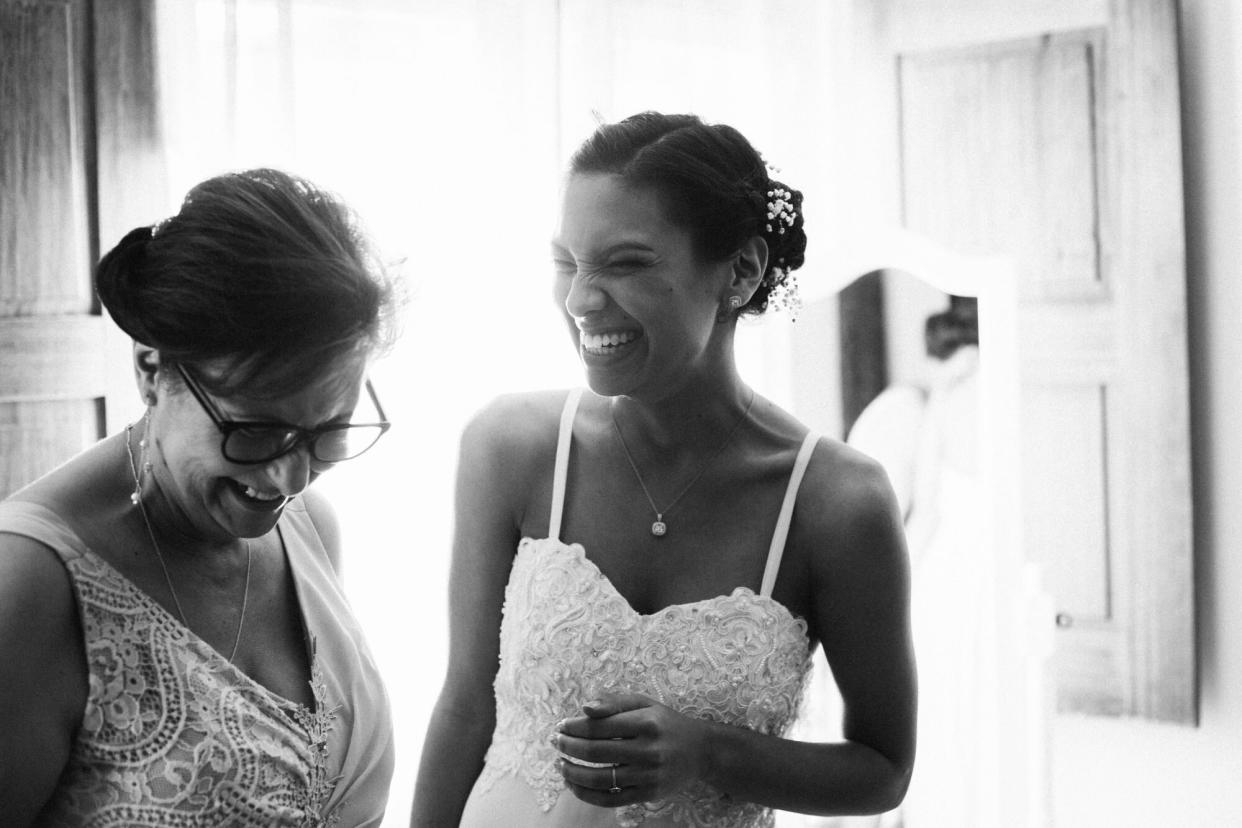5 Things the Mother of the Groom Should Never Say to the Bride

Claudia Fernandes / EyeEm
The mother of the groom is the matriarch of her family, but when it comes to communicating with the bride and her loved ones when the wedding date nears, her job get can lost in translation at times. "The mother of the groom's role is to be a liaison or spokesperson—a representative of the groom's family," Elaine Swann, a lifestyle and etiquette expert and the founder of the Swann School of Protocol, explains. "The position that she should take throughout this process is one that is welcoming and most certainly gracious and inviting towards the bride and the entire family."
With so many details that go into curating the big day, from selecting the guests to the wedding party, it's important for a groom's mother to lend a helping hand when needed—and avoid extending unwelcome words along the way. Here are a few things the mother of the groom should absolutely not say to her son's soon-to-be spouse during this time.
Related: The Kindest Things a Mother of the Groom Can Do for Her Son on His Wedding Day
"I will make the entire guest list."
It's important for the mother of the groom to be supportive about who the couple invites to their wedding, as opposed to making personal requests via the bride. "This is the couple's day," Swann says. "Even if the mother of the groom or the parents of the groom are hosting the event, they still have to remember that they're hosting it on behalf of the couple. It is still really up to the couple to decide."
"My daughter should be a bridesmaid."
Plotting out who will be in the wedding party is also up to the couple of the hour. The mother of the groom should avoid interjecting if the bride-to-be doesn't plan to include the bridesmaids that she has in mind, the groom's sister, included. Swann suggests having an open conversation about these candidates in the beginning of the wedding-planning process. She encourages mothers of the groom to ask questions like, "What are your plans, as far as bridesmaids are concerned?" and "Would you like to have any of our family members, or are you going to focus solely on your family members and friends?"
"I think when we have these conversations in advance, we go into it knowing exactly what's expected, and you know how to move forward from there," Swann says.
"I don't like the wedding-day décor."
The mother of the groom might be interested in certain design details leading up to the big day, such as the bride's selected flower arrangements—especially if her family is contributing financially. However, unless she offers to spring for peonies or garden roses instead of lower-budget blooms, the couple should ultimately have the last say. And ultimately, any negative, hurtful comments about the final design landscape should never fall on the bride's ears.
"You should change your dress and makeup for the wedding."
Once the big day arrives (and it is time for the bride to walk down the aisle!), the mother of the groom should not make any negative comments about the woman of honor's appearance—whether it's about her wedding dress or her makeup. "Avoid critical comments or suggestions on the day of," Swann says. "We have to keep in mind that once things are done, they're done, and decisions have already been made." So if the mother of the groom is going to add any commentary, it needs to be helpful and positive, she says.
"Your marriage should be like mine."
The mother of the bride may have her own traditions and expectations about the bride's role in her marriage. However, she should allow the newlyweds to develop their own. "One of the things that we have to recognize is that each generation has their thought process and their ideologies as far as marriage and partnership is concerned," Swann says. "The mother of the groom should make sure that she's not imposing her generational opinion about marriage on the couple." Instead, the etiquette expert encourages the mother of the groom to build a relationship with the bride outside of her relationship with her son in support of their marriage journey.

